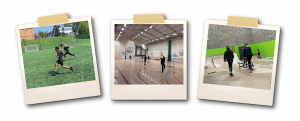PE
Intent: The Big Ideas in Physical Education at Atherton High School
The PE curriculum at AHS provides a high-quality physical education curriculum to lay the physical, mental, and personal development foundations to complement the whole curriculum. We aim to develop students’ knowledge about how physical activity and sport can benefit their health and wellbeing, fitness, character and contributes to the teaching of our school values of respect, responsibility, and ambition. Through experiencing a variety of sports and physical activities pupils will develop their character, including resilience, confidence, and independence, so that they can make informed choices and contribute positively to the community of AHS, their local community, and future environments.
Our pupils will develop their knowledge of physical education through three pillars of progression:
- Motor competencies
- Rules, strategies, and tactics
- Healthy participation
Pupils will learn how the knowledge gained in one sport can be transferred to another. This knowledge will be explicitly taught so that pupils see how sporting principles, such as effective use of possession, thread through different sports and activities. Practice is essential for pupils to get better at PE. Pupils are provided with sufficient time to develop their practical skills through precise and sequentially planned lessons that build from simple skills to the more complex. Pupils will gain knowledge of the physical, emotional, and social benefits of regular physical activity, lifelong participation and leading a healthy active lifestyle.
How the Physical Education curriculum contributes to the school’s curriculum intent
Our curriculum supports students from all backgrounds, including those who are disadvantaged, so students can access a high-quality, knowledge-rich curriculum. Our school community believes strongly in providing disadvantaged pupils with a curriculum that enables them to reach the academic standards of their non-disadvantaged peers. Our goal is to bring our young people into the big conversations of our disciplines, to bring depth to our curriculum, so they can understand the world around them.
- Knowledge – Knowledge is at the heart of every scheme of learning. Knowledge is built through a cyclical approach, allowing pupils the opportunity build on previous experiences, making progress by knowing more and remembering more. Pupils will develop their knowledge of what makes a performance effective and be able to apply this to their own and others’ work. This knowledge will allow our pupils to make positive, conscious choices around personal health, well-being, and diet, to help supplement physical and mental growth through a healthy active lifestyle.
- Vocabulary rich – We have selected a challenging list of vocabulary, to enrich learning and deepen subject understanding. PE is a vocabulary-rich subject that contains both specific terminology and informal language which can be used to chunk more complex information. Developing our pupil’s vocabulary can increase participation and prevent them becoming marginalised due to not understanding the language of physical activity.
- Aspiration – Through a knowledge rich ambitious curriculum, we aim to create a culture of successful thinking and, by seeing first-hand that everyone can excel at something, encourage a positive mindset in all pupils. Pupils will be taught to analyse their performances compared to previous ones and demonstrate improvement to achieve their personal best. We want our pupils to feel that sense of greatness and accomplishment that comes with being an expert.
- Character building – Physical education and participation in competitive sport and physical activity teaches pupils about teamwork, discipline and overcoming obstacles, which are valuable traits that help our pupils grow as people. Participation in sport helps pupils learn how to deal with failure, develop leadership skills and improve self-confidence. It teaches pupils about perseverance, commitment, and the importance of hard work. These are important qualities that can help pupils achieve their goals both in and out of a sporting context.
- Love learning –Pupils develop a love of learning by engaging in a learning experience that is interesting and fun, led by teachers with strong subject knowledge, who are enthusiastic and passionate about their subject. By experiencing a variety of activities, and challenges, pupils can learn to enjoy the process of learning and develop a sense of curiosity and excitement about what they are learning. Physical education can help pupils develop a sense of accomplishment and pride in their knowledge and physical abilities, which can translate into a greater sense of confidence and motivation in other areas of their lives.
The Physical Education Learning Journey
Physical Education Knowledge Organisers
Autumn Term
Spring Term
Summer Term
Reading in Physical Education
Reading is approached through exposing pupils to a variety of written press media sources such as newspaper articles, autobiographies, match reports and sports magazines. Pupils also analyse the findings of key sporting reports including Sport England’s Active Lives survey. Pupils are taught to use correct sporting terminology when analysing their own performance and the performance of peers.
Learning Beyond the Classroom in Physical Education
Pupils have the opportunity to engage in a variety of extra-curricular activities that provide additional opportunities for them to practise, consolidate and apply their learning. These activities range from sports like football, netball, and rugby to physical activities like fitness training and dance. Each half term pupils can represent their form in our inter-form competition that culminates on Sports Day. Pupils also have the chance to represent AHS in a range of inter-school sports including football and netball, as well as team building activities like orienteering at Haigh Woodland Park.





